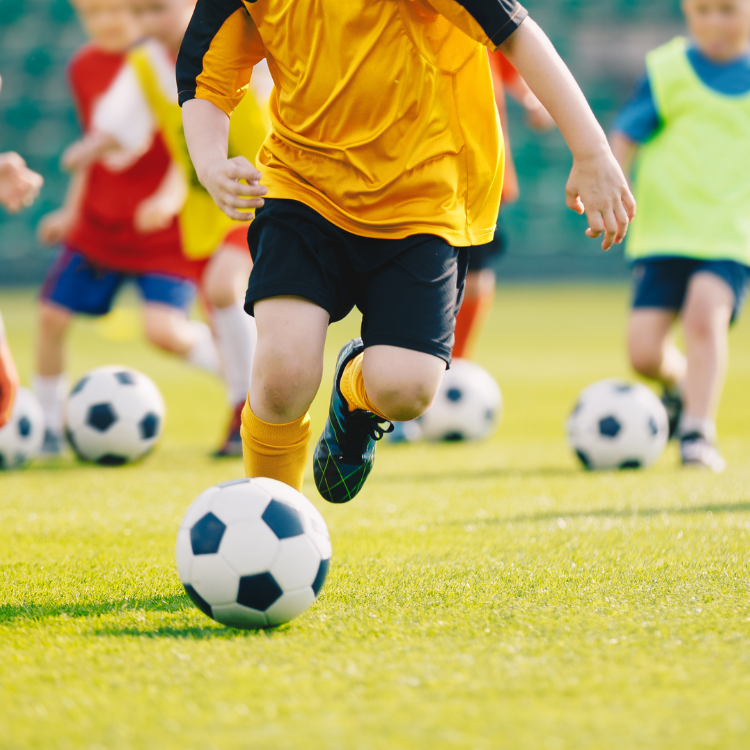As a parent, watching your children compete in sports brings you great pride and joy. To ensure they have the best experience and remain healthy throughout their seasons, it is vitally important that you arm yourself with knowledge on how to keep sport-oriented children healthy and strong throughout their seasons. This guide explores key methods of helping maintain health and strength during sports participation including nutrition, hydration, rest as well as stretching routines and warm-ups.
1) Nutrition
Eating healthily and nutritiously is one of the best ways you can support your sporty kids to keep them in peak shape and prevent injuries. A diet rich in essential vitamins, minerals, proteins and carbohydrates will provide them with energy needed to perform at their highest level – make sure they enjoy a nutritive snack prior to any physical activity to give their bodies what it needs for optimal performance!
Foods such as nuts, fruits, and vegetables provide natural energy sources that will keep your kids energized during practices or games. Furthermore, making sure your kids stay properly hydrated both before and after exercise will allow them to perform at their optimal capacity without fatigue or muscle strain affecting performance. It’s also crucial that children rest properly between games/practices to help allow their bodies to heal properly while helping avoid injury.
2) Stretching and Warm-ups
Stretching is an essential component of physical activity for kids involved in sports. Stretching helps increase range of motion and can even enhance performance, so before exercising or competing it’s essential that they perform some simple stretches to prepare their bodies for what the game demands. Warm-ups are another vital step to keeping young athletes healthy and strong; an enjoyable jog or jump rope session before practice will get blood pumping through their veins and warm muscles up so they are prepared to perform at optimal levels.
3) Rest and Recovery
Rest and recovery are essential for any athlete, particularly one who is participating in sports at a competitive level. It’s important for kids to get enough sleep every night, preferably 8-9 hours as this allows their bodies time to recover and heal. During rest periods, the body is able to repair and rebuild muscle fibers which helps to reduce the risk of injury or fatigue. Additionally, it’s also beneficial for kids to take breaks between practices and games. This will help ensure that they don’t overwork themselves which can lead to burnout and exhaustion.
The type of rest that kids need can vary depending on the activity they are doing. Active rest is when athletes are still doing some form of physical activity but at a lower intensity than usual, such as walking or yoga instead of running or weight lifting. This gives their bodies time to recover without completely stopping physical activity altogether. Passive rest is taking complete time off from all forms of exercise for anywhere from a few days to weeks at a time in order for the body to fully rejuvenate. Getting adequate rest is key for athletes as it helps maintain strength and prevents injuries from occurring due to overtraining or fatigue.
If your child suffers a sports-related injury, it is imperative that they seek urgent care immediately and take the steps for recovery. Depending on the severity of their injury, doctors may suggest specific rehabilitation plans designed to aid full healing without further injury – physical therapists and trainers may be able to offer additional advice about how best to recover.
4) Mental Preparation
Mental preparation is just as important as physical preparation when it comes to playing sports. It’s important to make sure that your child has the right attitude and outlook before engaging in any physical activity. Encourage them to set goals, both short-term and long-term, for themselves and challenge them to work hard towards achieving those goals. Additionally, practice positive self-talk with your children and remind them of their own personal strengths. This will help boost their confidence levels and give them the motivation they need to perform well in any sport.
By following these tips, you can ensure your sporty kids remain healthy, strong and energized while participating in sports. Even though physical activity is extremely beneficial for kids, it’s also important to balance it out with adequate methods to ensure a healthy and sustainable routine. Proper nutrition and hydration, stretching routines, warm-ups and rest can ensure their success season after season.




Pingback: 5 Health Problems That Don’t Just Affect The Elderly Rural Mom